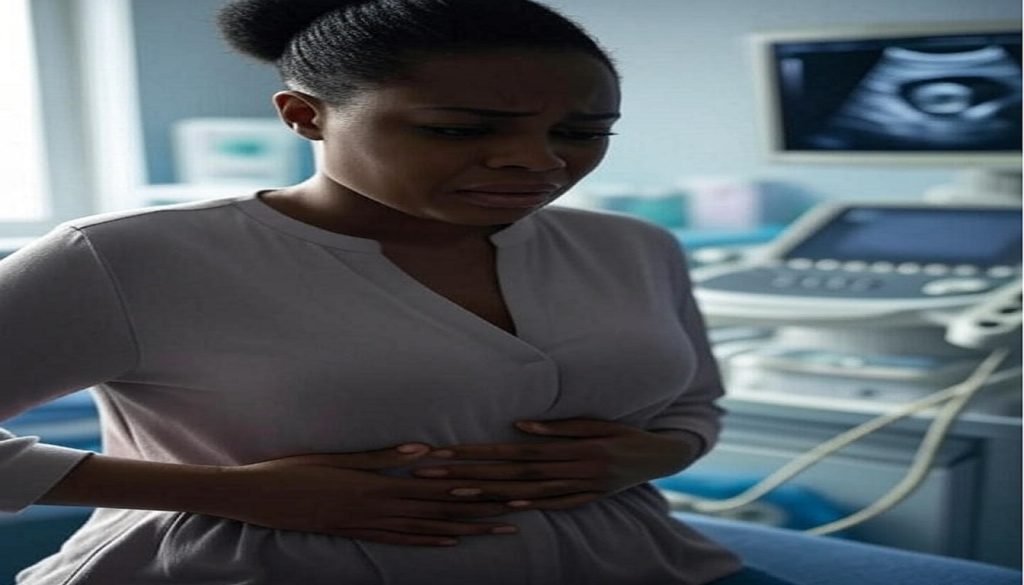Uterine fibroids, medically known as uterine leiomyomas, are a significant health concern for women worldwide, but they disproportionately affect Nigerian women due to genetic, cultural, and healthcare access factors. While generally benign, they can cause serious discomfort and health complications if not diagnosed and managed early. Understanding the top warning signs of fibroids, their unique impact on Nigerian women, and practical steps for diagnosis and treatment can make a life-changing difference.
Signs of Fibroid: What Is Fibroid, and Why Does It Matter?
Uterine fibroids are non-cancerous growths of the uterus that often appear during childbearing years. They vary in size, from as small as a seed to as large as a melon, and can grow in or around the uterus. While fibroids are common globally, research shows they are particularly prevalent among African women, including Nigerians.
Nigerian and African women, in particular, are at higher risk of developing fibroids. According to studies, up to 80% of Black women may develop fibroids by age 50, with many experiencing severe symptoms in their 20s and 30s.
“African women are more likely to develop fibroids, and often at younger ages.”
– Dr. Ebele Okoye, Consultant Gynaecologist, LUTH. NIH – Uterine Fibroids Overview
Cultural silence, stigma, and poor access to healthcare often delay diagnosis in Nigeria, making it crucial for women to recognize the early signs and seek help promptly. Break Mental Health Stigma
Early Warning Signs of Fibroids You Shouldn’t Ignore
While some women may have fibroids without any symptoms, many experience a range of discomforts that can interfere with daily life. These are the most common early warning signs Nigerian women should watch out for:
- Heavy or prolonged menstrual bleeding: needing to change pads every 1–2 hours or bleeding for more than 7 days.
- Pelvic Pain or Pressure: Persistent pain or a feeling of heaviness in the pelvic area, sometimes radiating to the lower back.
- Frequent Urination: Fibroids pressing on the bladder can cause a constant need to urinate or difficulty emptying the bladder.
- Painful intercourse: Discomfort during or after sex, which is often due to fibroids pressing on surrounding tissues.
- Visible or enlarged abdomen: A noticeable bulge or bloating in the lower abdomen, sometimes mistaken for weight gain or pregnancy. Pregnancy Care Tips
Ignoring these signs can lead to complications such as anemia, infertility, and pregnancy risks.
Why Signs of Fibroid Differ Among Nigerian Women
Not all women experience fibroids the same way. Several factors unique to Nigeria can influence how fibroids present and progress:
- Delayed diagnosis: Many Nigerian women resort to traditional remedies first or endure symptoms in silence due to shame or misinformation.
- Self-medication and herbal treatments: While some natural remedies provide relief, they can also mask symptoms and delay proper care.
- Urban vs. rural divide: Women in rural areas often lack access to gynecological services and diagnostic tools like ultrasounds.
- Cultural beliefs: In some communities, fibroids are wrongly attributed to spiritual causes, leading to delays in seeking medical help.
- Diet: Research suggests that obesity, red meat, and processed foods increase fibroid risk, while a diet rich in fruits, vegetables, and whole grains may lower it.
- Regular exercise: Research evidence also shows that regular physical exercise helps by reducing body fat and balancing hormones. Source: WebMD – Fibroids and Nutrition
When to See a Doctor for Signs of Fibroids and Available Tests in Nigeria
Early detection is critical to managing fibroids effectively. Women experiencing any of the warning signs should consult a doctor promptly. Early diagnosis can prevent complications like infertility or severe anemia and allow for less invasive treatments.
Diagnostic tools

- Pelvic examination
- Ultrasound scan (commonly available in many Nigerian hospitals)
- MRI (available in tertiary or private facilities for detailed imaging)
Early diagnosis can prevent complications and expand treatment options.
Hospitals and Clinics in Nigeria Offering Fibroid Screening: Most general hospitals and tertiary facilities like the University College Hospital (UCH) Ibadan and many private clinics in major state capitals offer reliable screening. Source: Healthline—Diagnosing Uterine Fibroids
Treatment Options for Signs of Fibroids: From Natural to Surgical in Nigeria
Treatment for fibroids depends on symptom severity, age, and reproductive goals. Nigerian women have several options, though access and affordability vary.
Natural/Home Remedies
- Herbal teas (e.g., moringa, turmeric, green tea). Natural Remedies For Arthritis
- Anti-inflammatory foods like ginger and garlic
- Lifestyle changes: reducing red meat, increasing fruits/veggies, and weight control. WebMD – Fibroids and Natural Treatment
Natural remedies should be used with caution.
Medical Treatment
- Hormonal therapies like GnRH agonists to shrink fibroids
- Non-hormonal medications for pain and bleeding control
- Iron supplements for anemia
Surgical Options in Nigeria

- Myomectomy: Fibroid removal, preserving the uterus (suitable for women who want to conceive)
- Hysterectomy: Removal of the uterus, often recommended for severe cases or post-childbearing
- Uterine Artery Embolization (UAE): Available in some advanced centers. Mayo Clinic – Uterine Fibroids Treatments
Preventing Complications of Fibroids
Untreated fibroids can lead to serious complications, including
- Severe Anemia from Heavy Bleeding: Excessive blood loss can cause fatigue, dizziness, and heart strain.
- Pregnancy Complications: Fibroids may increase the risk of miscarriage, preterm labor, or difficult deliveries.
- Risk of Needing Emergency Surgical Intervention: Large or rapidly growing fibroids may require urgent intervention if they cause severe pain or organ compression.
- Obstruction of the bladder or intestines: Due to a large or rapidly growing fibroid mass.
Don’t ignore warning signs. Early care saves lives.
Coping with Fibroids: Emotional and Social Support
Living with fibroids can take a toll on mental health, especially when symptoms disrupt daily life or fertility. Joining support groups can be helpful.
Examples:
- Fibroid Warriors Nigeria (Facebook)
- Local hospital wellness groups
- Counselling services at teaching hospitals
Connecting with others who share similar experiences helps reduce feelings of isolation.
Frequently Asked Questions on Signs of Fibroids
- What are the earliest signs of fibroids Nigerian women should look out for?
The earliest symptoms often include heavy menstrual bleeding, pelvic pain or cramps, bloating or abdominal swelling, and frequent urination due to pressure on the bladder. Some women may also feel fatigue from anemia caused by prolonged bleeding.
- Can fibroids cause infertility or pregnancy problems?
Yes, in some cases. Fibroids can interfere with conception by blocking the fallopian tubes or altering the shape of the uterus. During pregnancy, they can increase the risk of miscarriage, preterm labor, or complications during delivery. However, many women with fibroids still conceive and deliver successfully.
- Are fibroids common among Nigerian women?
Yes, very common. Studies show that Black women, including Nigerians, are more likely to develop fibroids—often at a younger age and with more severe symptoms compared to women of other ethnic groups.
- When should I see a doctor if I suspect I have fibroids?
You should consult a doctor if you experience:
- Heavy or prolonged menstrual bleeding (soaking pads every 1–2 hours)
- Severe pelvic pain
- Rapid abdominal swelling
- Difficulty conceiving or frequent miscarriages
Early diagnosis helps prevent complications.
- Can fibroids be treated naturally, or do they always require surgery?
Not all fibroids need surgery. Small, symptom-free fibroids may only require monitoring. Some women find relief through diet changes, herbal remedies, or hormonal treatments. However, large or symptomatic fibroids may require medical or surgical treatment, such as myomectomy or uterine artery embolization.
Final Thoughts on The Signs of Fibroids
Fibroids are common, especially among Nigerian women, but they don’t have to ruin your health or future. By recognizing the signs early, seeking proper diagnosis, and exploring safe treatment options, you can take control of your reproductive health.
If you suspect fibroids, consult a healthcare provider and explore support groups to navigate this journey with confidence. Speak up. Get checked. Choose care. Smart Health Goals
This post is for educational purposes only; therefore, consult your doctor before making any medical decision.
Kindly Subscribe, Like and Share this post.





Pingback: Common Women’s Health Disorders in Nigeria Explained